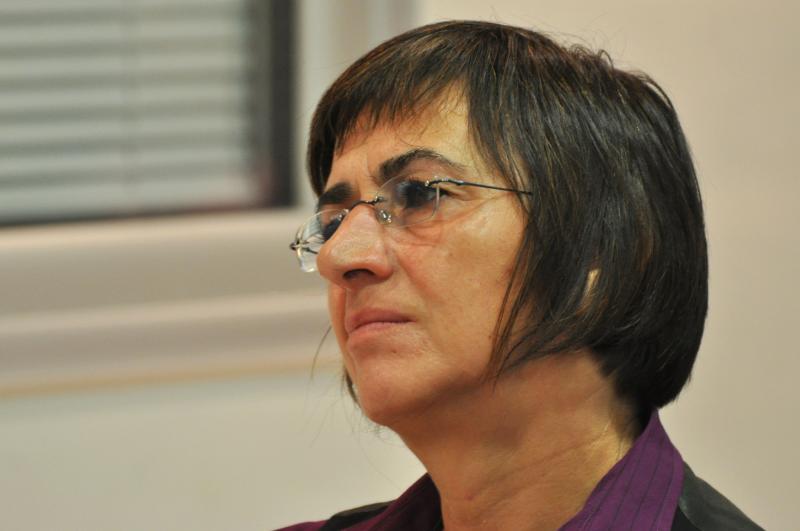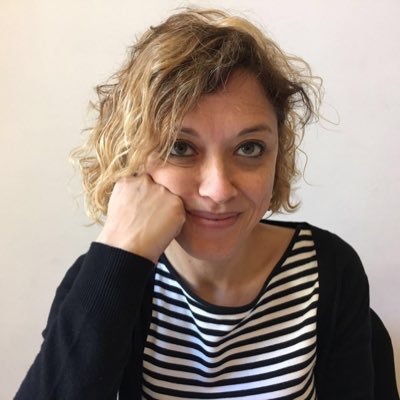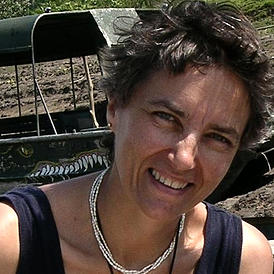The Permanent Peoples’ Tribunal’s Judgment on
The Human Right to Health of Migrant and Refugee Peoples
(Berlin, 23-25 October 2020)
45° Session on the Violations of the Human Rights of Migrant and Refugee Peoples
The Judgment and the Recommendations formulated by the Permanent Peoples Tribunal (PPT) on The Human Right to Health of Migrant and Refugee Peoples (Berlin hearing 23-25 October 2020) have been publicly presented on December 16th 2020. The Indictment and the program of the Berlin hearing were forwarded by the Secretariat of the PPT to the German Government and the European Commission, who were the indicted parties, but did not answer to the invitation to participate and present their positions.
According to the terms of reference of the Indictment – formulated by a network of German organisations coordinated by the national IPPNW, and shared by several movements, organisations and institutions from European countries – the focus of the Berlin hearing was on the violations of the fundamental rights of the people of migrants and refugees in Germany. Health care was the main area investigated and documented as indicator of human rights. Criminal responsibilities of the country and European competent institution and representatives were also been determined.
The Jury of the PPT included high level magistrates, lawyers, academic experts from 5 European countries and included in its consideration and assessment the indispensable updated scenario of the factual evidences and of the normative developments of the last three years, which have been the object also of an intensive monitoring and judging activity of the PPT through its Sessions in Barcelona, Palermo, Paris, London, Brussels.
The detailed report of the decisions of the PPT is articulated in specific sections dedicated to the documentation of the facts in Germany and in Europe: the normative, socio-political, juridical contexts which have been the main determinants of the tragic and systemic violations of human and peoples’ rights and of their impunity; the qualification of the responsibilities from the point of view of binding international laws and treaties, as well as with respect to constitutional national and European obligations. The PPT document also contains recommendations on the priorities which should be adopted. As forcefully stressed in the public presentation of the Judgment, a concrete sign of a way forward is a must – in a scenario which is tragically affecting migrants and refugees, but is also, progressively and deeply, destroying the human and humane identity of the European institutions and societies.
The evidence presented by the testimonies and reports from the routes and frontiers where the whole spectrum of crimes fully corresponding to the technical juridical qualification of “against humanity” are happening (from direct killing, to torture, to trafficking, to expulsion to no safe places and regimes, to a specifically severe violation of women lives and dignity) have been overwhelming. What across the chronicles could sometimes appear a fragmented situation, must be qualified, with an emphasis already underlined in 2017 in Palermo, as a “systemic crime” – a juridical category which is included in the statute of the PPT as an indicator of higher (criminal?) severity, of the structured characteristics of the violations. Beyond the personal responsibilities and actors, who should already be prosecuted, the PPT stresses and submits to the attention of the civil society, as well as to the representatives of national and international law, that what happens is the product of a necropolitics. In addition, there is the gravity of a lack of instruments to address the criminal accountability of these policies as well as to address the impunity for a crime which is truly an ongoing genocide. This reality is visible, explicitly planned and confirmed, as it has become, incredibly very clear in the September 2020 EU Pact on Migration and Asylum which is specifically and extensively taken into consideration in the Judgment of the Berlin Hearing.
The PPT Judgements, although not considered as legally binding, their evidences and declarations of responsibilities are submitted to the ‘legal institutions’, and also more directly they are conceived as instruments of conscience and struggle for all those peoples, movements, subjects who are fully and intensely aware that all humans are, by definition, subjects of the human right to move, to be citizen of all places where the right to life and dignity could be respected, or at least pursued.

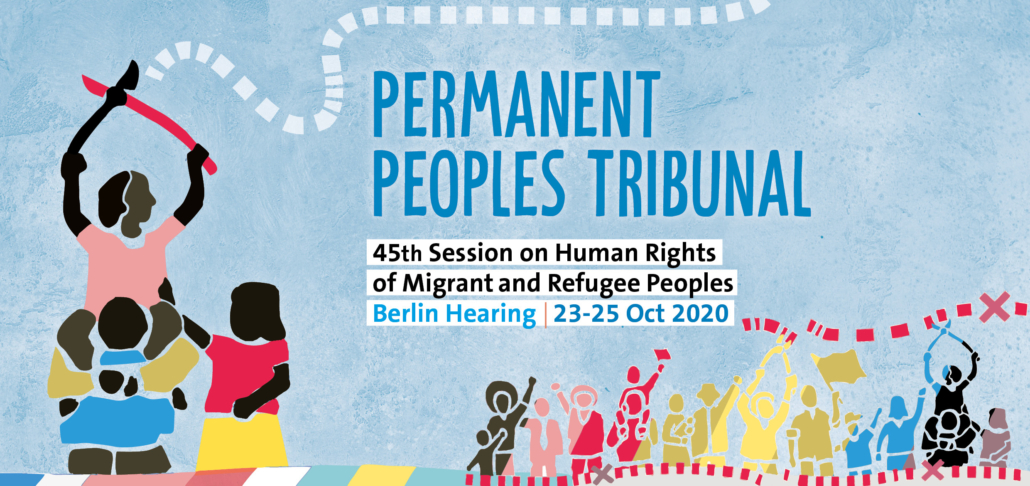

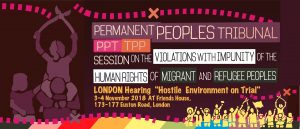
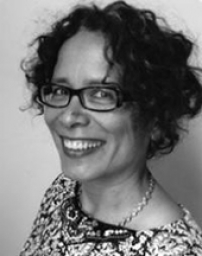 Bridget Anderson - Professor of Migration, Mobilities and Citizenship at Bristol University. She formerly held the post of Professor of Migration and Citizenship and Research Director at COMPAS in Oxford. She has a DPhil in Sociology and previous training in Philosophy and Modern Languages. She has explored the tension between labour market flexibilities and citizenship rights, and pioneered an understanding of the functions of immigration in key labour market sectors. She is the author of Us and Them? The Dangerous Politics of Immigration Controls (Oxford University Press, 2013) and Doing the Dirty Work? The Global Politics of Domestic Labour (Zed Books, 2000). She coedited Who Needs Migrant Workers? Labour Shortages, Immigration and Public Policy with Martin Ruhs (Oxford University Press, 2010 and 2012), The Social, Political and Historical Contours of Deportation with Matthew Gibney and Emanuela Paoletti (Springer, 2013), and Migration and Care Labour: Theory, Policy and Politics with Isabel Shutes (Palgrave Macmillan, 2014). Bridget Anderson has worked closely with migrants’ organisations, trades unions and legal practitioners at local, national and international level.
Bridget Anderson - Professor of Migration, Mobilities and Citizenship at Bristol University. She formerly held the post of Professor of Migration and Citizenship and Research Director at COMPAS in Oxford. She has a DPhil in Sociology and previous training in Philosophy and Modern Languages. She has explored the tension between labour market flexibilities and citizenship rights, and pioneered an understanding of the functions of immigration in key labour market sectors. She is the author of Us and Them? The Dangerous Politics of Immigration Controls (Oxford University Press, 2013) and Doing the Dirty Work? The Global Politics of Domestic Labour (Zed Books, 2000). She coedited Who Needs Migrant Workers? Labour Shortages, Immigration and Public Policy with Martin Ruhs (Oxford University Press, 2010 and 2012), The Social, Political and Historical Contours of Deportation with Matthew Gibney and Emanuela Paoletti (Springer, 2013), and Migration and Care Labour: Theory, Policy and Politics with Isabel Shutes (Palgrave Macmillan, 2014). Bridget Anderson has worked closely with migrants’ organisations, trades unions and legal practitioners at local, national and international level.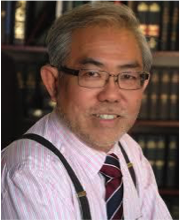 Wah-Piow Tan - A Balliol educated human rights solicitor in London representing Chinese migrants in the UK since 180s. A former political prisoner and exile from Singapore, Wah-Piow is well known since his youth as a student leader, activist, writer and public speaker advocating democratic reforms in Singapore. Most recently, in August 2018, he enjoyed unprecedented extensive media coverage following his 80 minutes discussion with the new Malaysian Prime Minister on the subject of expanding the democratic space in Southeast Asia. In 1980, Wah-Piow attended the Permanent People’s Tribunal (PPT) hearing on The Philippines in Antwerp as an observer.
Wah-Piow Tan - A Balliol educated human rights solicitor in London representing Chinese migrants in the UK since 180s. A former political prisoner and exile from Singapore, Wah-Piow is well known since his youth as a student leader, activist, writer and public speaker advocating democratic reforms in Singapore. Most recently, in August 2018, he enjoyed unprecedented extensive media coverage following his 80 minutes discussion with the new Malaysian Prime Minister on the subject of expanding the democratic space in Southeast Asia. In 1980, Wah-Piow attended the Permanent People’s Tribunal (PPT) hearing on The Philippines in Antwerp as an observer. Maureen Byrne is a Councillor. She is a retired full time Equality Officer in Unite the Union. She has been on the Employment Tribunal panel for 30 years. Currently she is Employment Law adviser for the Stansted Airport Branch. Maureen is chairperson for the Bury St Edmund’s Women’s Aid Refuge and Local Association for Mental and Physical Handicapped Charity, a group supporting young people with special needs. She is the Town Council Chairperson of the Personnel Committee.
Maureen Byrne is a Councillor. She is a retired full time Equality Officer in Unite the Union. She has been on the Employment Tribunal panel for 30 years. Currently she is Employment Law adviser for the Stansted Airport Branch. Maureen is chairperson for the Bury St Edmund’s Women’s Aid Refuge and Local Association for Mental and Physical Handicapped Charity, a group supporting young people with special needs. She is the Town Council Chairperson of the Personnel Committee.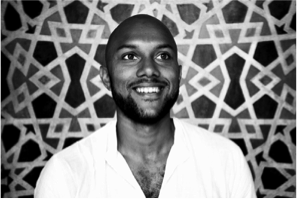 Dr Eddie Bruce Jones AB (Harvard); MA (Humboldt-Universität zu Berlin); JD (Columbia); LLM in Public International Law (KCL is currently acting dean and Lecturer in Law at
Dr Eddie Bruce Jones AB (Harvard); MA (Humboldt-Universität zu Berlin); JD (Columbia); LLM in Public International Law (KCL is currently acting dean and Lecturer in Law at  Leah Bassel - is a member of Haringey Welcome, a campaign group working for fairness, dignity and respect for migrants and refugees in the London borough of Haringey. Leah researches the political sociology of migration, intersectionality and citizenship as Professor of Sociology at the University of Roehampton. Her books include Refugee Women: Beyond Gender versus Culture (Routledge, 2012), The Politics of Listening: Possibilities and Challenges for Democratic Life (Palgrave, 2017), and Minority Women and Austerity: Survival and Resistance in France and Britain co-authored with Akwugo Emejulu (Policy Press 2017). She is currently co-Principal Investigator, with Akwugo Emejulu, of the Open Society-funded project Women of Colour Resist and has also led projects funded by the Economic and Social Research Council and the British Academy. Before pursuing an academic career, Leah was an emergency outreach worker in Paris where she provided humanitarian assistance to asylum seekers and created a circus camp project for refugee youth. She holds a DPhil from the Refugee Studies Centre/Nuffield College, University of Oxford and a BA and MA from McGill University, Canada.
Leah Bassel - is a member of Haringey Welcome, a campaign group working for fairness, dignity and respect for migrants and refugees in the London borough of Haringey. Leah researches the political sociology of migration, intersectionality and citizenship as Professor of Sociology at the University of Roehampton. Her books include Refugee Women: Beyond Gender versus Culture (Routledge, 2012), The Politics of Listening: Possibilities and Challenges for Democratic Life (Palgrave, 2017), and Minority Women and Austerity: Survival and Resistance in France and Britain co-authored with Akwugo Emejulu (Policy Press 2017). She is currently co-Principal Investigator, with Akwugo Emejulu, of the Open Society-funded project Women of Colour Resist and has also led projects funded by the Economic and Social Research Council and the British Academy. Before pursuing an academic career, Leah was an emergency outreach worker in Paris where she provided humanitarian assistance to asylum seekers and created a circus camp project for refugee youth. She holds a DPhil from the Refugee Studies Centre/Nuffield College, University of Oxford and a BA and MA from McGill University, Canada. 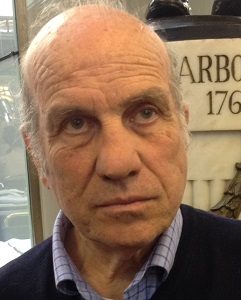 Enrico Pugliese - is Professor of sociology of work, (Emeritus) at Sapienza- University of Rome, faculty member of the Graduate school in applied sociology, University of Rome La Sapienza. He is also research associate at Irpps (Istituto di ricerche sulla popolazione e le politiche sociali), National research council, Rome. He has been Professor of Sociology of work at the University of Napoles "Federico II" where he served as chairman of the department of sociology and then as dean of the faculty of sociology. He has been visiting professor in several European and American Universities. He has been also meember of the National commission of inquiry on work at the Consiglio nazionale dell’economia e del lavoro, chairman of the Commission for drafting the immigration law of the Regione Campania. He has also been member of the advisory Commission of the City Mayor of Napoli for immigration policy. His main research interests include: international migration, Italian migration in Europe, third world immigration in Italy, migration policies, labour market with special reference to precarious employment and unemployment. His recent publications on migration include: Quelli che se ne vanno (Those who leave), Il mulino 2018, and International Migrations and the Mediterranean in Andreotti, Benassi, Kazepov (eds) Western Capitalism in transition, Manchester University Press 2018.
Enrico Pugliese - is Professor of sociology of work, (Emeritus) at Sapienza- University of Rome, faculty member of the Graduate school in applied sociology, University of Rome La Sapienza. He is also research associate at Irpps (Istituto di ricerche sulla popolazione e le politiche sociali), National research council, Rome. He has been Professor of Sociology of work at the University of Napoles "Federico II" where he served as chairman of the department of sociology and then as dean of the faculty of sociology. He has been visiting professor in several European and American Universities. He has been also meember of the National commission of inquiry on work at the Consiglio nazionale dell’economia e del lavoro, chairman of the Commission for drafting the immigration law of the Regione Campania. He has also been member of the advisory Commission of the City Mayor of Napoli for immigration policy. His main research interests include: international migration, Italian migration in Europe, third world immigration in Italy, migration policies, labour market with special reference to precarious employment and unemployment. His recent publications on migration include: Quelli che se ne vanno (Those who leave), Il mulino 2018, and International Migrations and the Mediterranean in Andreotti, Benassi, Kazepov (eds) Western Capitalism in transition, Manchester University Press 2018.

